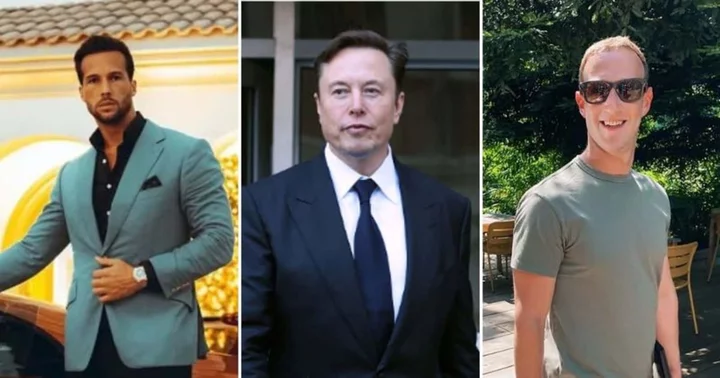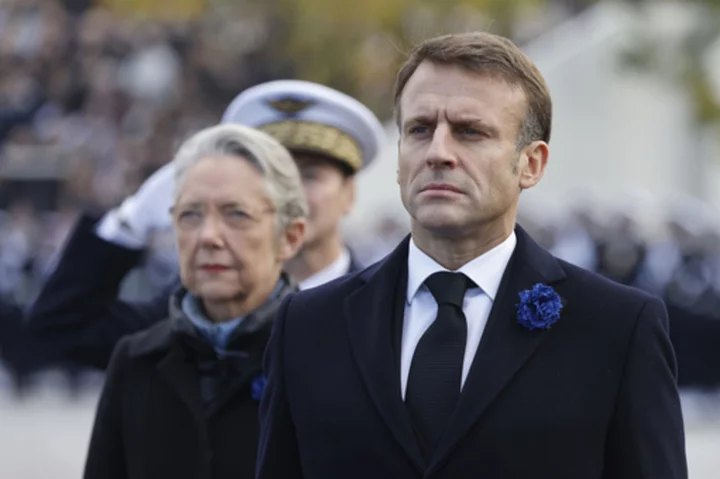US President Joe Biden on Tuesday nominated former treasury secretary Jack Lew to be ambassador to Israel, tapping a veteran political player with close ties to the Jewish state at a turbulent time between the allies.
Lew, an Orthodox Jew who observes the weekly sabbath, will play a key role in managing the relationship as Biden attempts to broker a potentially historic deal for Saudi Arabia to recognize Israel.
The nomination comes after a spike in tensions, with Biden criticizing an overhaul of the judiciary by Prime Minister Benjamin Netanyahu in what critics say is a threat to democracy by the most right-wing government in Israel's history.
Lew will need confirmation from the Senate, where Biden's Democratic Party retains control but Republicans ahead of the 2024 US election could fight against the nomination.
In a formal statement, the White House cited the "distinguished career in public service" of Lew, who has served in successive Democratic administrations.
Under Barack Obama, Lew -- a trained lawyer -- served as treasury secretary and earlier as White House chief of staff, director of the Office of Management and Budget and as a deputy secretary of state to Hillary Clinton.
David Makovsky, a distinguished fellow at the Washington Institute for Near East Policy, said that Lew, while more of a budgetary than a foreign policy expert, would be the first former cabinet secretary to become ambassador to Israel.
"Having him there is a signal by the president that he greatly values the bilateral relationship and that he wants someone of stature," said Makovsky, a longtime friend of Lew.
"It's going to come at a difficult time," he said.
Lew would succeed Thomas Nides, another veteran Democratic political operative who made headlines with his unusually blunt language on Netanyahu's judicial reforms.
Nides cited personal reasons as he left the position. His wife, Virginia Moseley, is a senior executive at CNN who remained in the United States during his tenure.
- Hopes and tensions -
In the latest outreach, Secretary of State Antony Blinken spoke separately Tuesday with Netanyahu and Palestinian leader Mahmud Abbas, amid Saudi insistence on progress on the Palestinian issue before any normalization.
With Abbas, Blinken discussed "support for a two-state solution and opposition to actions endangering its viability," a State Department statement said.
Brett McGurk, the coordinator for Middle East policy at the White House, is also visiting the region. Saudi Arabia has been seeking military and nuclear commitments from the United States in return for recognizing Israel, with official sources cautioning that no agreement is imminent.
Recognition of Israel by Saudi Arabia -- guardian of Islam's two holiest sites -- would be a diplomatic game-changer and arguably top the accords negotiated by Donald Trump's administration in which the United Arab Emirates, Bahrain and Morocco normalized ties with the Jewish state.
Biden describes himself as a friend of Israel and initially sought to minimize tensions with Netanyahu, who is popular among Republicans and had a toxic relationship with Obama.
But Biden has also kept Netanyahu at arm's length, with a visit to the United States expected only later this year.
The Biden administration has criticized the growth of Israeli settlements in the West Bank and returned to a pre-Trump policy of barring US funds for work at universities on occupied territory, triggering furious denunciations by Republicans who have vowed to use their power in Congress to reverse course.
Biden, however, has maintained one of Trump's key decisions of moving the US embassy from Tel Aviv to Jerusalem, which Israel considers its eternal capital but Palestinians also want as the capital of an elusive future state.
sct/dw









